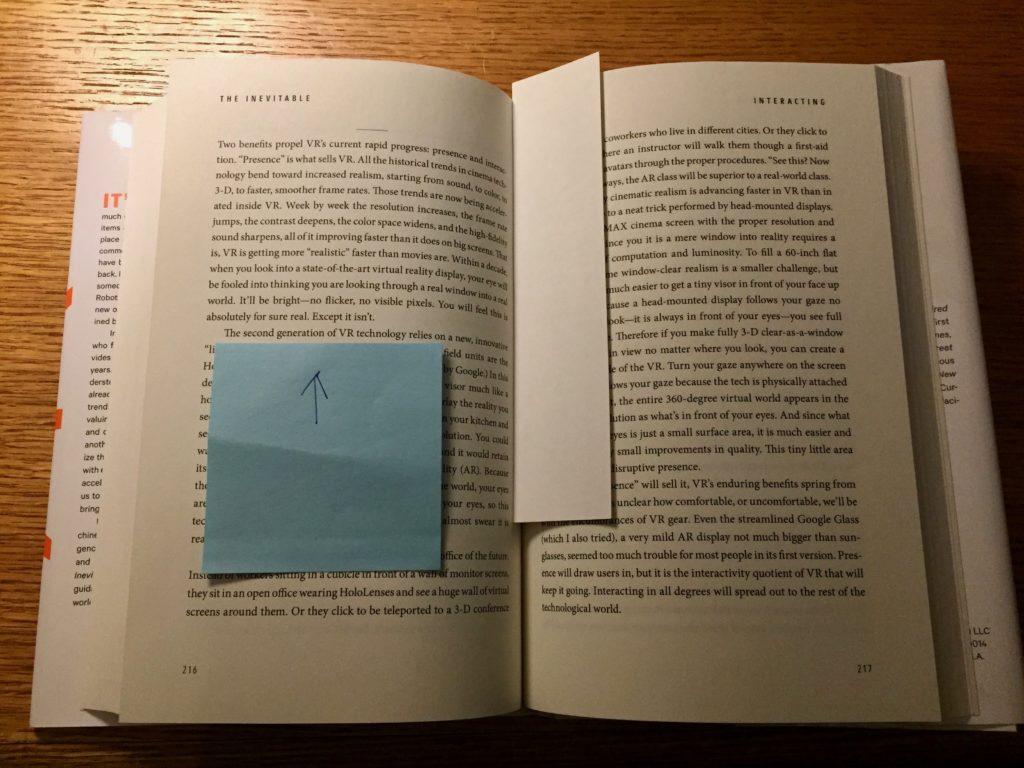The Upgraded Bookmark: 30 Seconds to Easier Reading
 This blog often explores abstract ideas relating to personal development, creativity, productivity, and the like. Today, though, I have a concrete recommendation: a simple, 30-second tip that will make it slightly easier to maintain a [reading habit](https://jonathanvieker.com/3-reasons-to-start-reading-more/).
This blog often explores abstract ideas relating to personal development, creativity, productivity, and the like. Today, though, I have a concrete recommendation: a simple, 30-second tip that will make it slightly easier to maintain a [reading habit](https://jonathanvieker.com/3-reasons-to-start-reading-more/).
The Problem
How do we keep track of our progress in a (physical) book?
Using a bookmark, obviously. The trouble with bookmarks, though, is that they only tell us where we left off within a two-page range, and that’s actually not very specific. It’s slightly (okay, very slightly) annoying to open a book and not know if you left off at the top of the left-hand page, the bottom of the right-hand page, or somewhere in between. The denser the book, the more irritating this is.